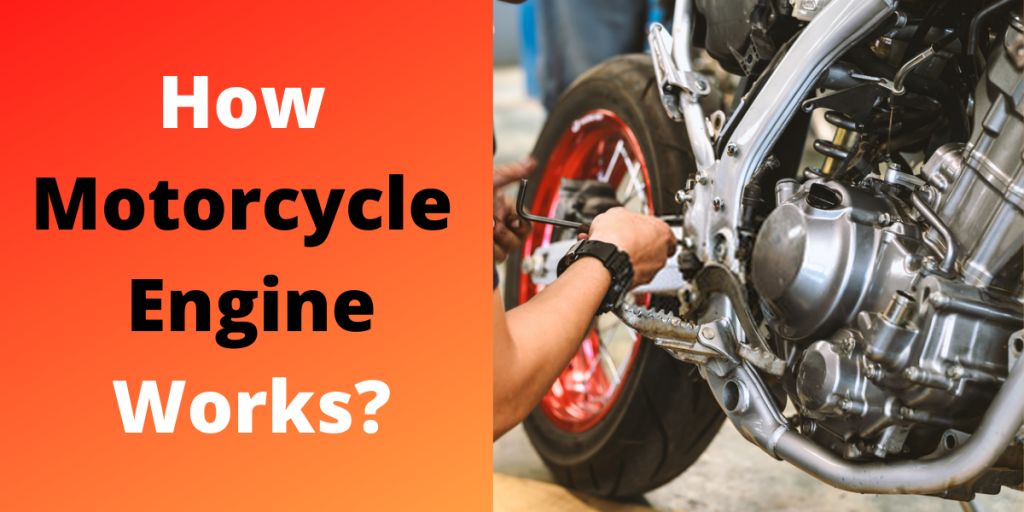Are you trying to avoid paying workshop fees or having to wait for your motorcycle to be serviced at a dealership? Perhaps you’ve discovered that when you’re out on an adventure, AAA isn’t always there to help. Whatever drove you to the religion of spinning wrenches, you can be confident that understanding the mechanics of your motorbike will be useful and lead to more confident excursions. Not to mention the money you’ll save by doing maintenance and repairs on your own.
While some of us are hampered by a lack of room or suitable tools, making dealership servicing inevitable, it is still beneficial to grasp the fundamentals of motorcycle maintenance. When biking through isolated wilderness areas or across international borders, a lot may go wrong. Even if you’re just an hour from civilization, a simple flat tire or a loose spark plug wire may ruin your day if you don’t know how to fix it.
Adventure motorcycle travel is unique in that you may learn a lot about motorbikes on the road, but you must know some things beforehand. Avoid becoming the weak link on a ride, having a mechanical issue and not knowing how to fix it, or having the proper tools. But where to begin? How do you learn to maintain a motorbike or even just learn the basics properly?
Manuals and other written materials
Believe it or not, the first place you should check is in your vehicle’s owner’s handbook. The majority of contemporary bikes are sent from the manufacturer with very detailed instructions for doing routine maintenance chores like checking fluid levels and adjusting your chain. It will also provide useful information such as the appropriate tire pressure, recommended lubricants, and recommended service intervals. If you are willing to study and possess a certain amount of patience, your owner’s manual is an excellent resource for covering the fundamentals and becoming familiar with your bike.
Aftermarket manuals from companies like Clymer and Haynes are your best choice if your motorbike did not come with one or if you lost it in a faraway country a long time ago. These instructions are significantly more in-depth, covering basic maintenance activities and more difficult tasks such as repairing timing chains and engine rebuilds, among others. The directions are simple, and you’ll be amazed at how much you can achieve by following the steps. The digital versions of these manuals are available from some of these firms, such as Haynes, and can be accessed on a smartphone or tablet, which is far handier than lugging a hardbound version in your saddlebag!
The disadvantage of these guides is that they might be several model years behind the current model year, owing to the extensive research and development required. Yet another possible difficulty is the high degree of expertise these books presuppose for some projects, which might be problematic. Fortunately, in this day and age of the internet, a simple Google search can frequently fill in the gaps in your knowledge on a specific subject.
Clymer and Haynes also provide non-model-specific volumes on motorcycle maintenance, such as those on fuel systems, engines, and electrical systems, which can be useful for more broad tasks or for getting a general understanding of motorcycle components for the first time.
A motorcycle mechanic’s manual may benefit even the most experienced among them; thus, you should not underestimate its importance.
Seminars, workshops, and classes are all available.
Attending workshops or seminars on motorcycle maintenance and repair is the next step in learning how to work on them. The practice of offering various lessons at different times of the year is quite prevalent among motorcycle dealerships, suspension shops, and parts retailers alike. The curriculum can include topics as diverse as fixing flat tires, basic safety inspections, and tune-up crash courses, as well as more in-depth topics like suspension tuning and valve checks, among other things. These lessons are frequently geared at beginner riders or those who are just getting their feet wet in the saddle, making them an excellent resource.
You may also consider looking into automotive repair programs at your local community college. This course will provide you with an in-depth understanding of the internal workings of a combustion engine, as well as the tools you will need to become a skilled mechanic. A large number of the principles of automobile mechanics are immediately applicable to bikes.
It is possible to attend a motorcycle event that provides comparable lectures if you cannot locate something similar in your region. Examples of such events are the Overland Expo, RawHyde ADV Days, and the Touratech Rally, which are all held in the United States. These rallies and the majority of other big rallies have seminars taught by industry experts on a variety of useful topics, including Hands-on learning in that sort of atmosphere may do wonders to help students retain the information they have learned to boost their confidence.
Another opportunity to gain practical experience is to participate in a local motorcycle club’s “maintenance day.” Motorcycle clubs frequently hold maintenance events at which more experienced or even professional technicians assist others with less understanding of the motorcycle. Many people believe that participating in these hands-on events is the most effective method to improve their mechanical aptitude, so keep an eye out for them in your region. Although it is rare, the most beneficial teaching might come from a knowledgeable buddy or fellow forum/group member who is ready to offer their expertise in exchange for a six-pack of their favorite adult beverage.
The Internet
It is difficult to ignore the relevance of the internet as a strong learning tool while discussing education. The quantity of knowledge available about motorcycle maintenance and repair that you can obtain on the internet is mind-boggling. The biggest disadvantage of the World Wide Web is that it is regrettably loaded with people’s views, which means that you should treat any information you obtain from it with extreme caution. That is not to suggest that there aren’t plenty of credible sources available; rather, it is to emphasize that you should exercise caution. There are several advantages to using third-party services, including the ability to see projects being completed before attempting them yourself, learning from other people’s errors, and picking up a few techniques along the way.
YouTube is a great place to start because it offers thousands of videos on how to do maintenance and repair jobs. Many aftermarket component makers also utilize YouTube to offer instructional videos, which is a great resource. You won’t always find precisely what you’re searching for, but you’ll almost always come across something that will be useful.
In addition to forums and Facebook groups, there are a plethora of informational resources accessible online, and there is a good possibility that someone has already identified the problem you are experiencing or provided the information you are looking for. Typically, joining and presenting oneself to these groups before making queries is the most effective strategy for reaping the benefits of these organizations. Contributing to the forum or group is vital since most of them function as information co-ops, and participation is not optional. It is where the majority of viewpoints will be found, as well as unverified information, so proceed with caution, but do not become disheartened. You may also obtain some of the most valuable insights and specialized information by participating in online forums. Almost certainly, there is a Facebook group or discussion forum dedicated to your motorcycle model, and there are numerous groups dedicated specifically to adventure motorcycles as well.
Practically speaking, the most effective approach to learning how to work on a motorbike is to use all of the materials listed above in whichever combination is most convenient for you. Keep yourself from falling for poor advice such as “Buy a motorbike that won’t start and troubleshoot the hell out of it until it does!” or “Just repair a lawnmower engine.” These approaches only serve to perpetuate poor behaviors, impart little knowledge, and almost always result in cracked knuckles.
Know What to Expect Before You Go
There are a plethora of materials available for individuals who want to deepen their mechanical understanding of the machinery that allow them to go on their travels. To be successful, you must conduct a thorough study, use the digital tools available to you, and understand how to avoid common pitfalls. And keep in mind that learning how to work on a motorbike in the comfort of your own garage is far more pleasant than learning on the job at a workshop.
When you can take breaks to check things up on the internet or acquire replacement components from a nearby store, mistakes are far less likely to occur as well. But, perhaps most significantly, when you break down in the middle of an adventure, you cannot be trapped in a garage in the same way that you can when you break down in a garage. So spend some time getting to know your motorcycle and how it operates; you could even end up saving some money in the process. The fruits of your labors will undoubtedly serve you well on all of the dusty kilometers that lie ahead.



